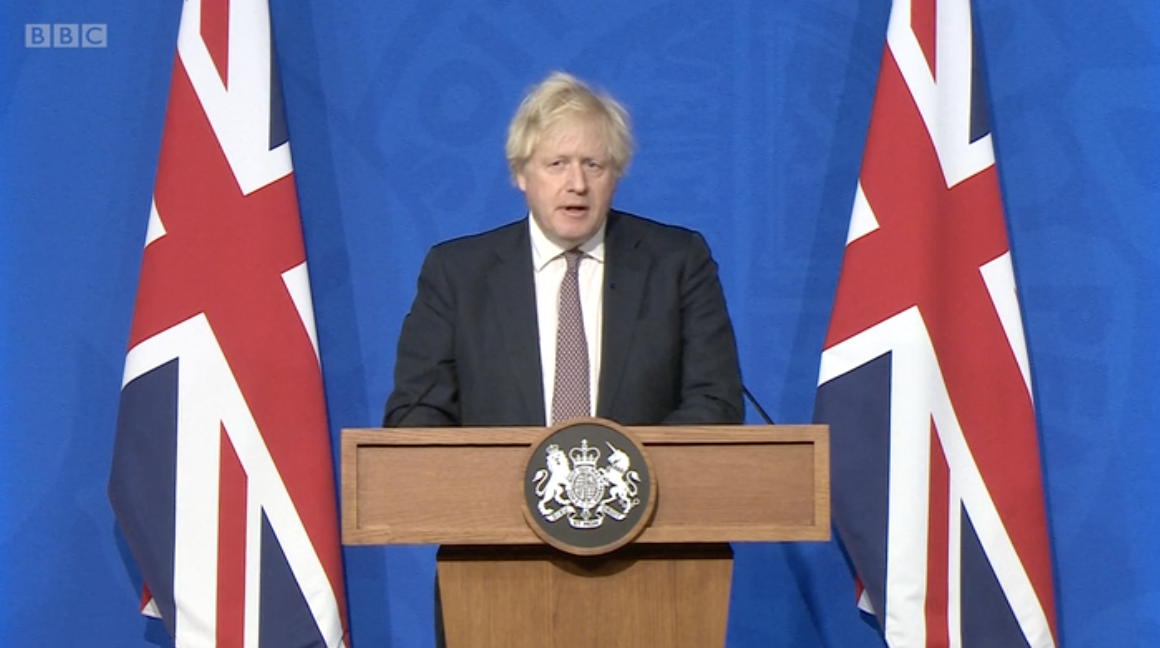A new variant has been identified that we don’t know a lot about. It seems to be significantly more transmissible than other variants; there is no evidence yet that it is any worse in terms of symptoms; and there is no evidence yet that it escapes existing vaccines, but scientists are more concerned that it might because of the large degree of mutations on the ‘protein spike.’ One connected cluster consisting of two people has been identified within the UK.
That, at the moment, is the sum total of information the Government has to respond to.
Most people, although they will be disappointed, will understand the temporary additional controls for people arriving from overseas and in particular from the affected countries in Southern Africa, while we discover more. They will also at least understand the logic of stringent requirements for people who come into direct contact with one of these so-called “Omicron” cases.
But some of the other measures talked about today at the Prime Minister’s briefing are so arbitrary and illogical that they will make people angry.
First, journalists queued up to ask the Prime Minister why he is not doing “more” and introducing vaccine passports. It hasn’t yet happened, but it is important to address the logic right away. The fear about this new variant is that it will substantially evade protection from vaccines; Chris Whitty has already confirmed that it can pass from one double-vaccinated person to another. Further vaccine escape would be bad news precisely because it would put vaccinated and unvaccinated people back in the same boat. Along the way, it would destroy the rationale for any form of segregation of the population by vaccine status, such as vaccine passports. To their credit, neither Whitty nor Vallance even bothered to respond to the idea.
By contrast, the decision to reimpose mandatory facemasks in shops is effective immediately. Is there a single scientist that believes upgrading the advice on reusable cloth facemasks in shops from recommended to mandatory for the entire population is a meaningful response to two new cases of a new variant on our shores? As Boris Johnson himself said, the protocols we had in place already were adequate for the previous variants, so any new strategy for the “Omicron” variant is, in theory, all about containment.
But what percentage of Covid transmission events have ever happened in shops? What percentage of those would be cases of the “Omicron” variant? And what percentage of those would be prevented by the return of mandatory advice? We are into a very small fraction of 1 percent at this point.
Meanwhile, masks are not mandatory in hospitality settings, or public events — or, obviously, homes and workplaces, where most transmission actually occurs after prolonged exposure.
So it’s utterly tokenistic. But worse, it suggests the return of restrictions as a form of gesture politics. In exchange for a theoretical gain so marginal as to be entirely irrelevant, the Government is choosing to impose a daily inconvenience that is a notorious source of division on its entire population. This is a bad bargain, and a continuation of a blinkered policy mindset that has bedevilled this pandemic.
Millions of people’s reaction to this news about facemasks will now be to say :“ah, they’re just warming us up for further restrictions down the road” or “they’re trying to make people afraid again” or “they’re just doing something to pacify the pro-lockdown lobby” or “it’s just to defend the Government from accusations of not having done enough” — sadly, it not possible with this measure to say that they are wrong.
Those, by contrast, who say, “facemasks are such a minor thing why would anyone complain about it?” miss the point. The introduction of restrictive policies that nobody thinks will be effective increases the atmosphere of distrust, amplifies the conspiracies, and widens the divisions in society. This in itself is a serious negative effect, and should be taken into account before casually introducing restrictions on a ‘might as well’ basis.











Join the discussion
Join like minded readers that support our journalism by becoming a paid subscriber
To join the discussion in the comments, become a paid subscriber.
Join like minded readers that support our journalism, read unlimited articles and enjoy other subscriber-only benefits.
Subscribe